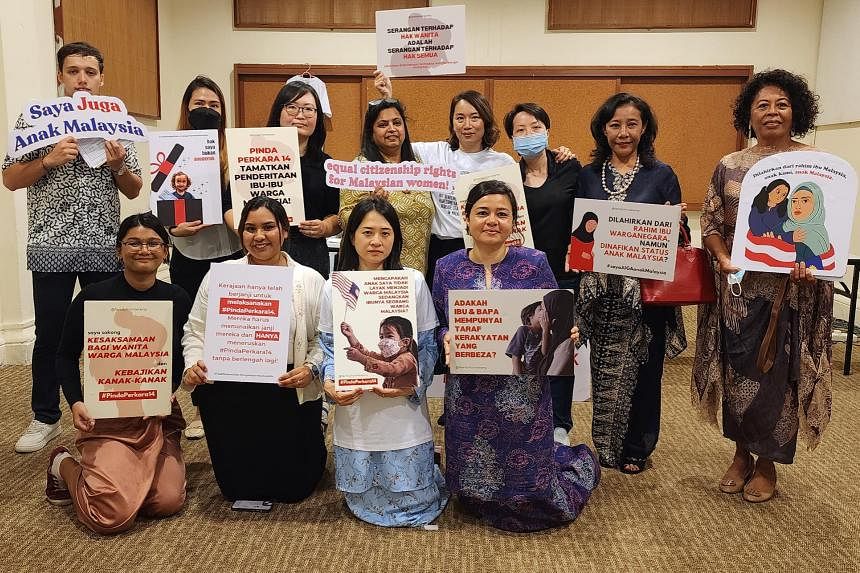KUALA LUMPUR – Malaysian lawmakers on March 27 deferred voting on a controversial Bill to amend citizenship laws in response to a public furore that could have seen Prime Minister Anwar Ibrahim’s administration fail to secure a two-thirds majority for the Bill to pass.
The vote has been postponed to June, when the federal Parliament reconvenes, with the government expected to seek more consultations with its own MPs who oppose the planned citizenship reforms, civil society groups and legal experts.
The proposed Bill, which includes seven amendments, three new provisions and repeals, aims to tighten the criteria for obtaining citizenship.
The Anwar-led government delayed the Bill, as it wants to appease stakeholders, particularly the opposing ruling party lawmakers, in a bid to secure the two-thirds majority vote, said analysts.
Some MPs in Datuk Seri Anwar’s Pakatan Harapan (PH) coalition oppose parts of the Bill, saying these would not resolve the issue of statelessness involving people such as abandoned babies and children from poor or rural families who do not have citizenship documentation.
“There is room for more changes in amendments to happen as the government is seeking to find middle ground by buying more time to listen to enforcement agencies, MPs in its own coalition and also civil society groups,” said Ms Arinah Najwa, director of strategic advisory firm BowerGroupAsia.
Amendments to the federal Constitution require a two-thirds supermajority – 148 in the 222-strong chamber – which Mr Anwar enjoys, thanks in part to six defectors from the opposition.
But he would suffer a major blow should some of the 81 lawmakers in his PH coalition go rogue, even if the Bill were to gain backing from the opposition. There is already concern about the stability of his 15-month-old government that comprises disparate allies.
Home Minister Saifuddin Nasution on March 27 tabled in Parliament the second reading of the Constitution (Amendment) Bill 2024, but did not proceed with the third reading, after which a vote could be held. Instead, Speaker Johari Abdul announced the adjournment of the current parliamentary session.
University of Malaya sociopolitical analyst Awang Azman Pawi said: “It is possible that the government is finding it hard to govern on this issue due to the complexity and sensitivity of citizenship matters, and trying to please everyone in such a contentious issue might be difficult, leading to delays or adjustments in the legislative process.”
PH leads the multi-coalition government and has long campaigned on a platform of progressive reforms. Its 2022 election manifesto made several pledges to reduce the problem of statelessness.
But the Bill had previously proposed to remove citizenship rights for stateless children born in Malaysia and foundlings by the “operation of law”, and instead requiring them to apply for citizenship, sparking a furious backlash. This amendment was later dropped after it received widespread condemnation, even from ruling party lawmakers who warned it would render thousands of children stateless.
The MPs’ concerns revolve in particular around how these abandoned children – especially if their parentage cannot be ascertained – would end up stateless and be denied basic education and other rights enjoyed by citizens. The government has said 256 babies were abandoned between 2020 and 2022.
Sabah in 2017 had over 23,100 stateless individuals aged under 21 with at least one of their parents a Malaysian citizen, the Home Ministry has said. The issue is sensitive in the Borneo state, where polls must be held by December 2025.
“Politicians in the state could use this Bill as cannon fodder to gain votes during the campaign period by denouncing one another and exploiting the issue to better position their parties as representing Sabah natives’ interests,” said senior analyst Halmie Azrie Abdul Halim at political risk consultancy Vriens and Partners.
Not all the proposed changes are being rejected. A lauded amendment is for mothers to be able to pass their Malaysian citizenship to their children born overseas. Currently, only fathers are allowed to automatically pass their citizenship to their children who are born abroad.
But other parts have been criticised, like scrapping automatic citizenship for children of permanent residents born in Malaysia, lowering the age limit of childhood citizenship applications to 18 from 21, and depriving foreign-born wives of citizenship should their marriage be dissolved within two years of them becoming Malaysians.
The criticisms over the proposed citizenship amendments come on the back of other political woes faced by Mr Anwar, who has been accused of backtracking on reform promises.
Recent unpopular government moves include raising the sales and services tax from 6 per cent to 8 per cent from March 1, the reductions in jail sentence and fines for former premier Najib Razak and the poor handling of a controversy involving the sale of socks printed with the word “Allah”.


